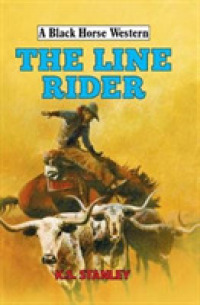Full Description
The Black Death of the late Middle Ages is often described as the greatest natural disaster in the history of humankind. More than fifty million people, half of Europe's population, died during the first outbreak alone from 1347 to 1353. Plague then returned fifteen more times through to the end of the medieval period in 1500, posing the greatest challenge to physicians ever recorded in the history of the medical profession.
This engrossing book provides the only comprehensive history of the medical response to the Black Death over time. Leading historian John Aberth has translated many unknown plague treatises from nine different languages that vividly illustrate the human dimensions of the horrific scourge. He includes doctors' remarkable personal anecdotes, showing how their battles to combat the disease (which often afflicted them personally) and the scale and scope of the plague led many to question ancient authorities. Dispelling many myths and misconceptions about medicine during the Middle Ages, Aberth shows that plague doctors formulated a unique and far-reaching response as they began to treat plague as a poison, a conception that had far-reaching implications, both in terms of medical treatment and social and cultural responses to the disease in society as a whole.
Contents
List of Illustrations
Acknowledgments
Introduction
The Challenge of Interpreting Plague Treatises
The Poison Thesis: A New Paradigm for Plague Medicine?
1 Causes
Origins of the Poison Thesis
The Poison Orthodoxy
The Artificial Poison Conspiracy
Universal and Remote Causes
Particular and Near Causes
Contagion
Conclusion
2 Signs
Environmental Signs
Bodily Symptoms—Fever
Bodily Symptoms—Bubonic Plague
Bodily Symptoms—Pneumonic Plague
Bodily Symptoms—Septicemic Plague
Predispositions to Plague
Conclusion
3 Prevention
The Non-Naturals
Preventative Medicines
Prevention as a Public Good
Prevention by Social Class
Flight
Conclusion
4 Cure
Principles of the Plague Cure
Surgical Procedures
Drug Therapies
Doctors Who Treated Themselves
Bedside Manner
Religious Responses
Magical Healing
Audience and Reputation of Plague Doctors
Conclusion
Epilogue: Plague's Verdict on Medieval Medicine
Appendix: Table Sources
Notes
Selected Bibliography
Index
About the Author





